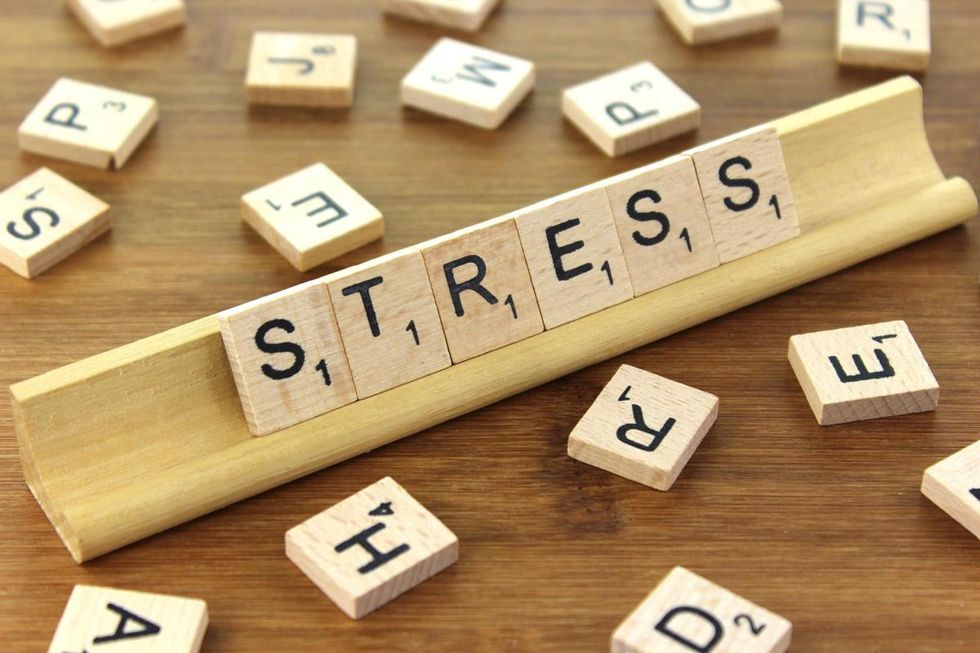If you’re anything like me, a B is the end of the world. Missed points are the commencement of the apocalypse and saying the wrong answer in class is sufficient reason to run away and spend the rest of your days in a van.
I’ve been this way my whole life. Every time something doesn’t work out exactly perfect, its my fault. I should have studied harder, started sooner, asked more questions, participated more, done more research. Failures are never attributed to situational circumstances, no matter how dire they are. I missed that point because I shouldn’t have taken a break from studying to snapchat, I didn’t get that scholarship because I should have reread my essay a nineteenth time.
If you do this in college, you’ll self-destruct. So I, a stressed out and self-blaming college student would like to give you some advice on stress and self blame that I am in no way qualified to goive.
1) Break the work down.
So, if you are a human being, you procrastinate. Maybe not all of the time, but we all are guilty. If somehow you never procrastinate or think that you never have, you can read another article.
When I have a stressfully large amount of work to be done in a short amount of time, I break it down by hour before I start. That way when I sit down to study Econ, I know for how long it will be, and when I switch to foreign policy, I know for how long that will be as well. Though it doesn’t decrease the amount of work to be done, it creates an illusion that is smaller than it is. Instead of saying “I have 4 chapters of homework,” I reassure myself that I “have 2 hours of studying to do.” It also helps me in that I can see everything I will get done that day, so I can remind myself that I AM being productive.
2) It isn’t the end of the world.
One test grade is not going to make or break your college career. Sure, it will hurt if it happens, but when you’re graduating years later – you won’t be able to remember the exam grades that disappointed you. One of my reasons for validating why I freak out about every graded assignment is “I need to get a good job.” It seems silly that my essay on a French movie freshman year will impact my ability to get a job in the future, but since the first days of high school it has been drilled into my brain that you do will in high school to get into a good college and you do well in that good college to graduate and get a great job. And that’s a lot of pressure.
So when I can feel my blood pressure rising because I didn’t get an A+ on my essay and I’m convinced that means I’ll be working in the fast food industry to pay off my student debts in my parents’ house for the rest of my life, I remind myself that employers aren’t going to ask why my 2nd economics quiz was so hard. Employers are going to ask how I moved on from that experience. How I moved on after a disappointment, a failure, an error. How I grew as a person and didn’t let it discourage me from future endeavors. I’m not saying that you should purposely fail in order to aid self-growth, in saying that inevitable failures shape us as people and give us the skills that our future jobs value. I once met a Lehigh alumni working at Goldman Sachs that told me he graduated with a 3.2. As an incoming freshman, my jaw dropped. He told me that YOU are valued more than a measure of you. Don’t flunk, sure, and try your best, but you can define yourself IF you choose not to be defined by a number.
3) Other people don’t matter.
As the queen as comparing myself to others (except there’s probably lots of people better at it than me) I am definitely not qualified to give this advice to anyone. But as a hypocrite, here is said advice. Your best is all you can do. Everyone has their own comparative advantages, and your cant specialize in everything (I have an econ test tomorrow and as you may be able to tell.) Don’t try to do great on the Calc exam because you want to beat the smug girl next to you who has already taken the class in high school, try to do better than your last grade. No one else has to know how you are doing. Don’t ask, don’t tell, and especially don’t be the person who feels the need to announce to the whole lecture hall that you got an A. You might not be a genius, but self-confidence and happiness are far more valuable than that A+.
4) It will be over.
Eventually, the workload will lighten. Whether it be sometime in the semester, over a break, or over the summer, you won’t be stressed forever.
When the work is through – even for a short period – pull a Donna and Tom from Parks % Rec, and treat yourself. You worked hard and you survived, and rest easy knowing that you did the best that you could in the circumstances that surrounded you. Never sit and dwell on all of the things that you “could have done.” Simply promise to be efficient next time and move on. Try listing everything that you did do. Impress yourself with your work ethic. Count your library hours, look at all the notecards you learned, compare what you know now to what you knew at the start of the semester.
You’re awesome!!
















